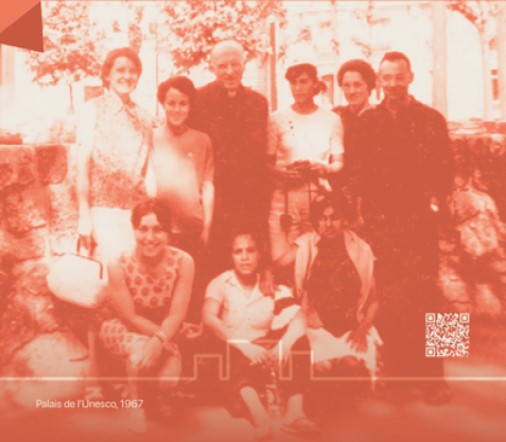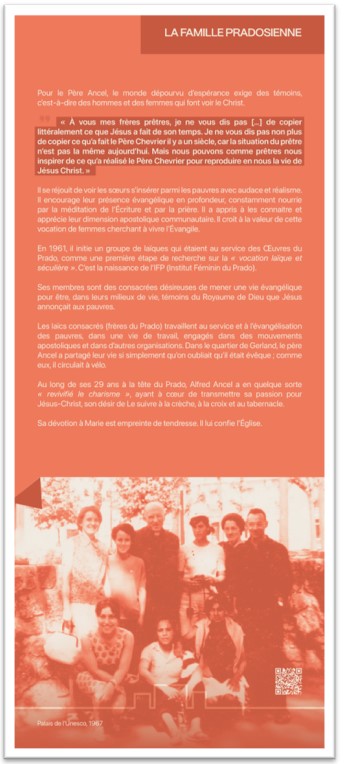
Visiting various sites
Finally, take the time to watch these videos about lay members of the pradosian family :
Testimonies of pradosians
Here are some video recordings of pradosians who knew Father Alfred Ancel well:
Read also :
Following Bruno Bibollet's testimony, Father Ancel's view of Dom Helder Camara
Extract (pages 306-308) of Mgr Olivier de Berranger, Alfred Ancel, a man for the Gospel, 1898-1984, Centurion, 1988.
February 1968 Completing his second visit to Latin America, Father Ancel was again in Recife on 18 February: after flying over Uruguay and Paraguay, he had to cross the whole eastern part of the country: nine hours by plane. He preached another retreat to around thirty priests, who were joined by two Taizé brothers present in Olinda: "the most assiduous before the Blessed Sacrament", he remarked. During the discussions, he also noted the "very good interventions" of an A.C.O. chaplain, who emphasised the need to "put popular religiosity to work in the service of evangelisation". On 22 February, Father Ancel had an evening meeting with Christian activists from the rural world, who told him about the 50,000 prostitutes in Recife, many of them very young girls who had come from the countryside because of hunger. The following day, in Tuparetama, in the state of Pernambuco, Father Ancel let himself be drawn into attending the Carnival parade. Here's the brief description he gave: "It's led by the mayor, sprinkled with talcum powder, music, dances, a lorry full of children". That's all we need to know; it's true that Father Ancel couldn't see colours...
On 27 February, Father Ancel visited Dom Helder for the second time. The latter informed him of his decision to leave his episcopal palace to live among his people. Father Ancel noted the words of the Archbishop of Olinda and Recife: "He respects those who have opted for violence; but a violent revolution cannot succeed today: the army would crush it; the people are not aware, they must first be made to stand up; the revolution would not be capable of governing the country. But," he told me, "we don't have the right to abandon our people. We are faced with an established disorder. If a layman said what I'm saying, they'd put him in prison. They haven't put me in prison yet. I'm not attacking anyone, but I'm denouncing injustice...". Father Ancel concludes: "You can't help but be impressed by this man who wants to be a man of God. He certainly has a prophetic charisma. We don't see any precise pastoral orientations in him. He is more the one who feels, sees and intervenes than the one who thinks, guides and organises. His faith and hope, in a charity that knows no bounds (he doesn't speak ill of anyone), are profoundly life-giving". Moreover, Dom Helder encouraged his visitor to give a public lecture on "The mission of the Church in temporal affairs". But as Mgr Ancel spoke in French, there were few people present. His host, however, insisted on being present and told the audience: "The hierarchy must intervene in social matters. We can't leave the laity on their own". Near the conference venue, there was a favella that the police had tried to destroy. Here, as in Bogotá, a priest - Padre Alessandro, an "old-time prophet" from Italy, writes Father Ancel - had intervened, and for the time being, the inhabitants had not been driven out.
